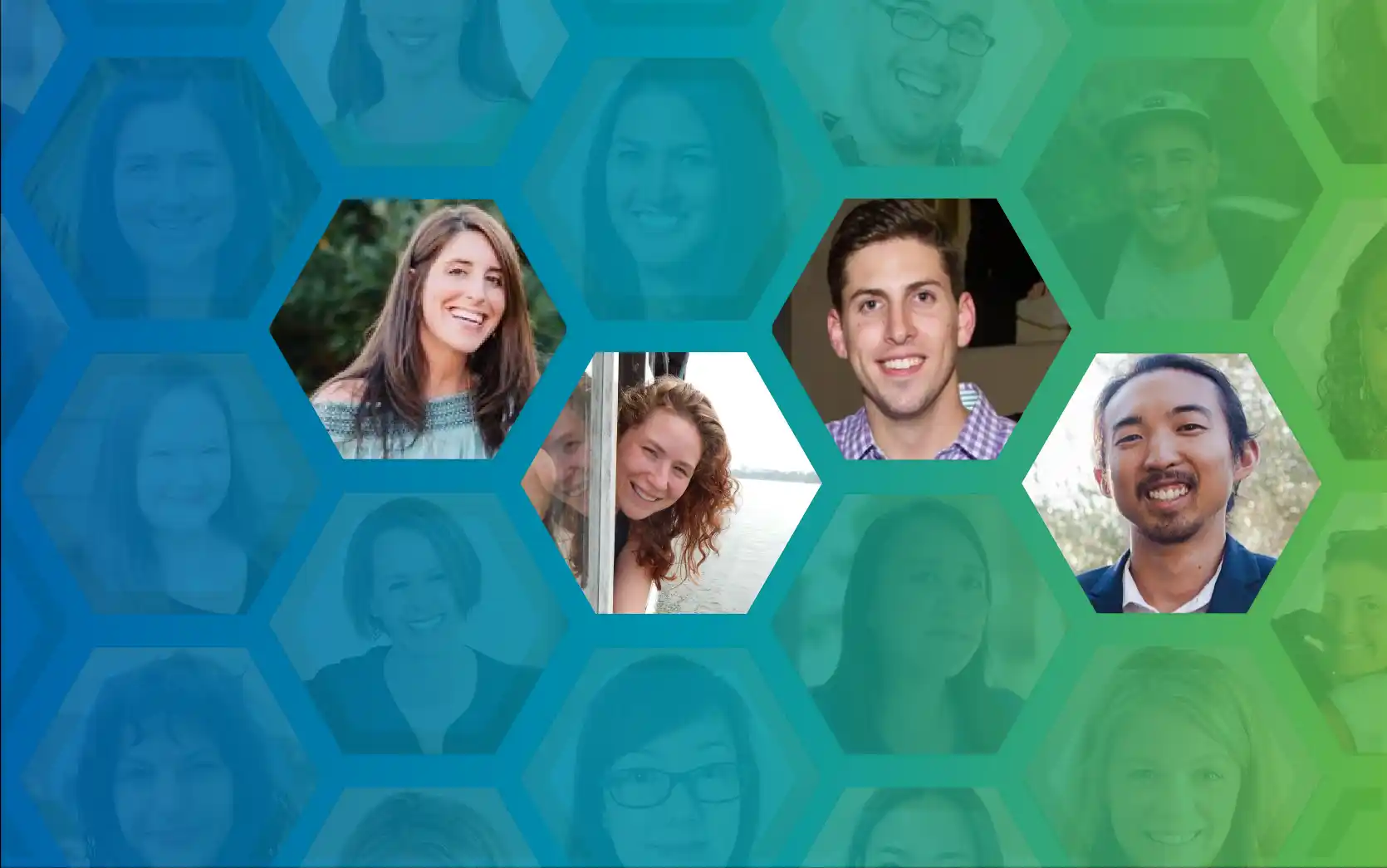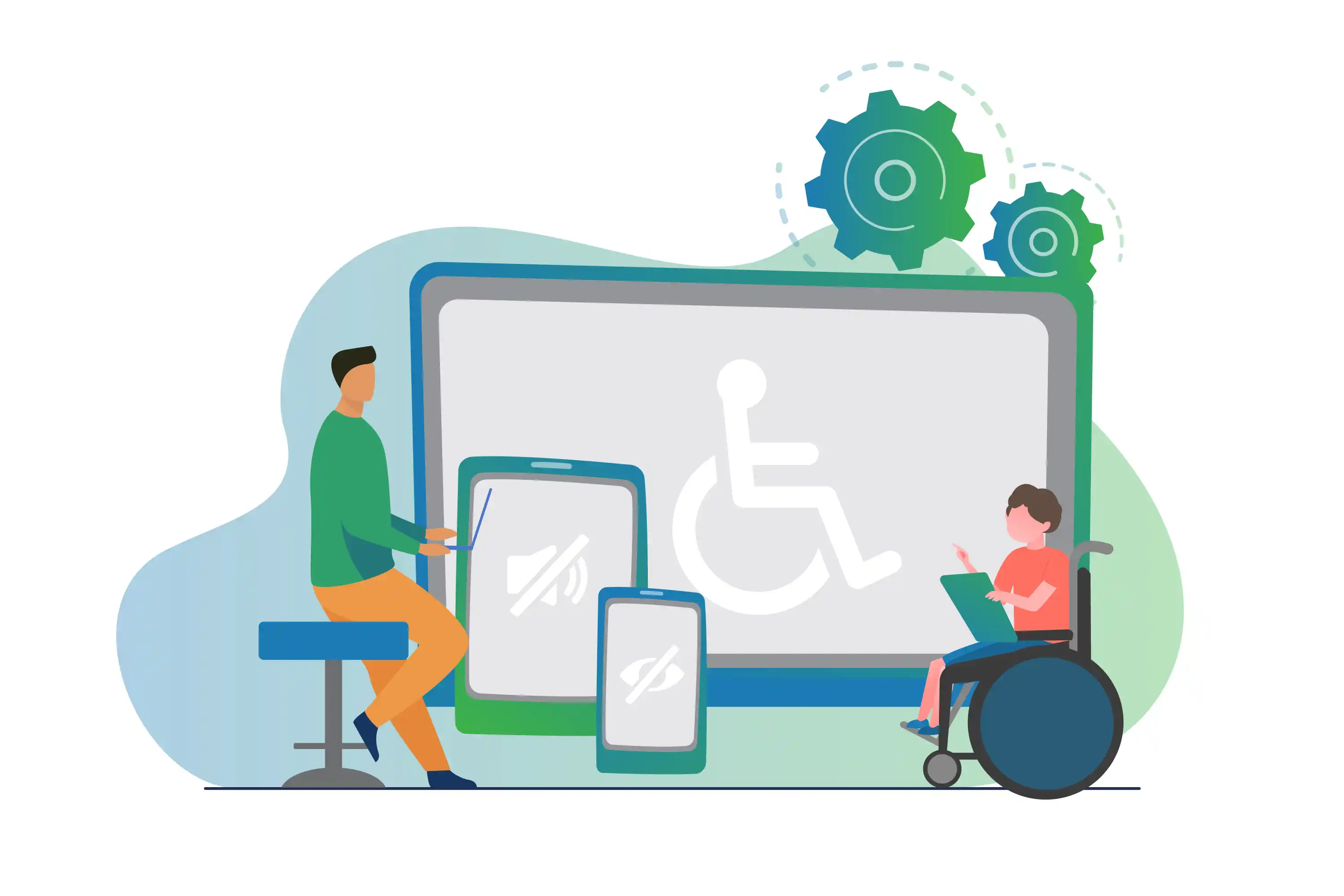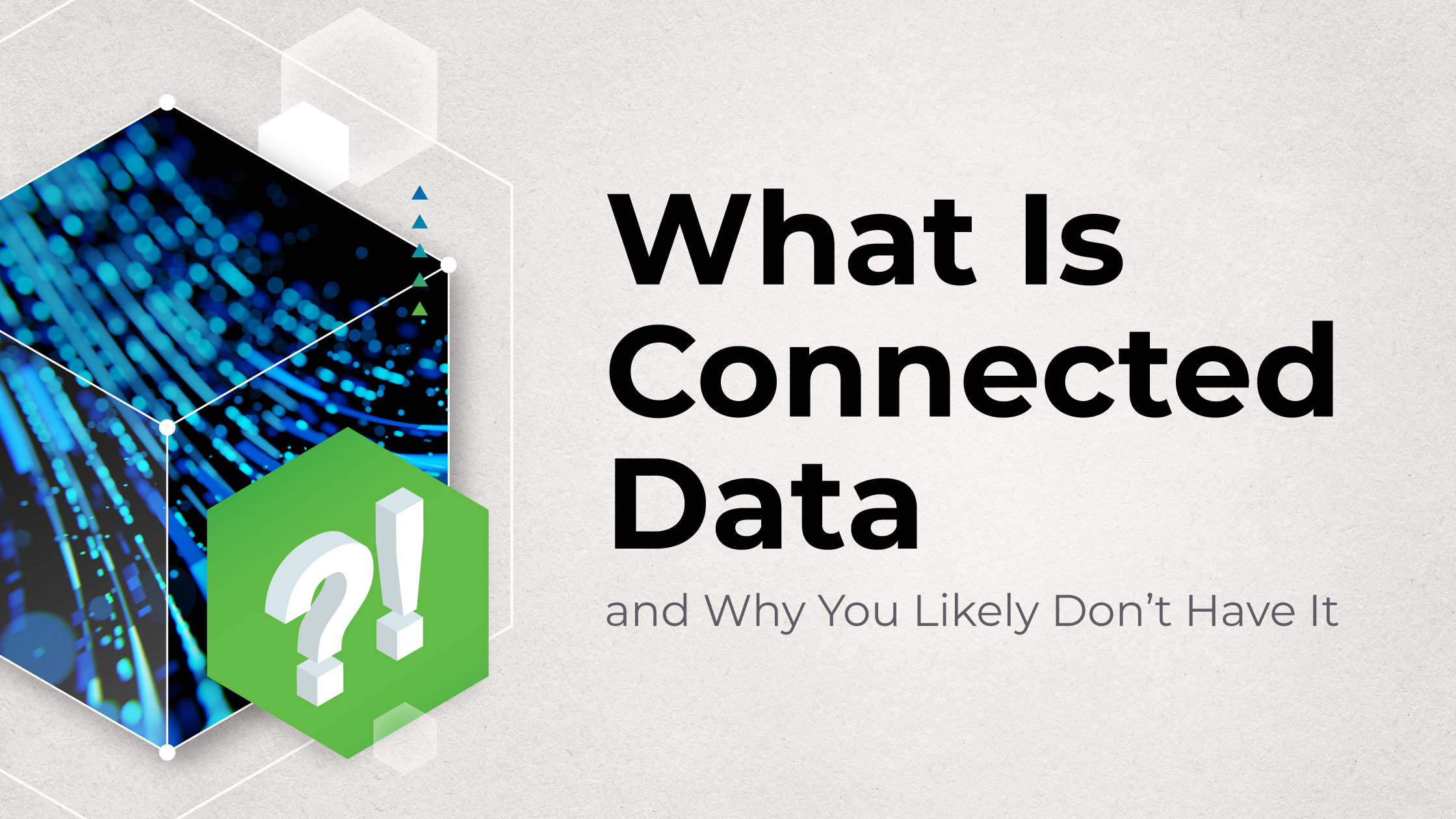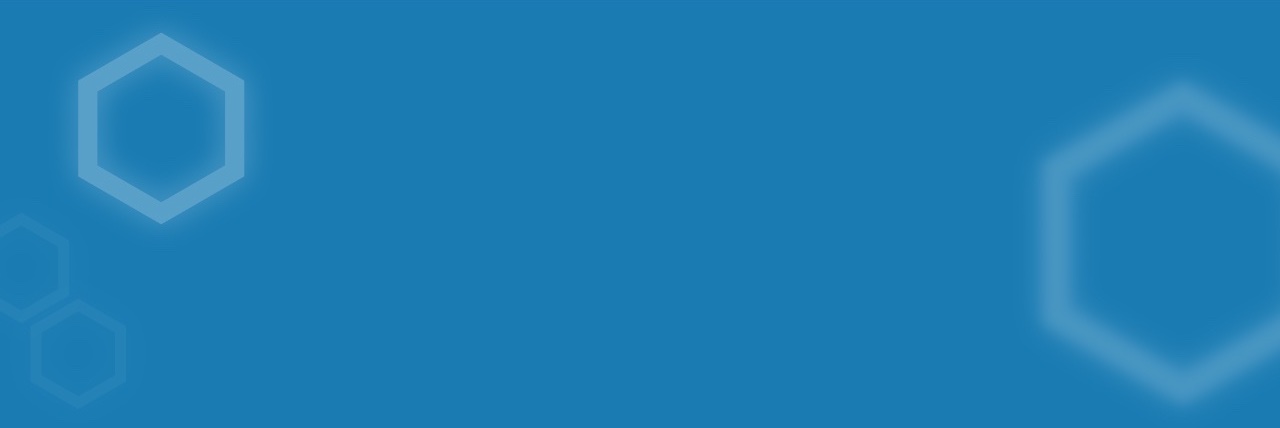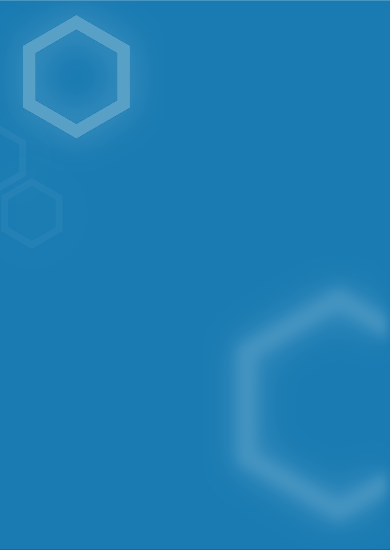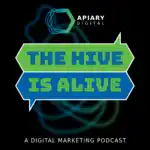
In Part 1 of our interview with Senior Vice President of Third Door Media, Michelle Robbins, we hear her insights on the challenges and best practices of working with remote teams, based on her experience using this model. We also discuss how Michelle and her team approach industry conferences and the holistic relationship between conferences and editorial content. Michelle serves as Editor-in-Chief across digital properties Search Engine Land, Marketing Land, and MarTech, working with remote team members to create cohesive content. Michelle discusses how her team manages communication and collaboration while working remotely. Take a listen to Apiary Founder, Karen Amundson, and host, Tess Barry, in conversation with Michelle Robbins.
Want more? Listen to other episodes
Full transcript (from transcription service)
Tess Barry
00:00:04 – 00:00:49
Welcome to the hive is alive. I’m your host test very on today’s episode. You’ll hear part one of the conversation between myself with Avery founder Karen, Hammond, St and Michelle Robbins senior vice president of third door media. We will focus on this, causing the remote team model as well as content strategy around conferences. This podcast is produced by a purely digital, a digital marketing, collective of experienced professionals dedicated to delivering performance, marketing solutions for growing brands. If there is vision is to enable exceptional performers to live their stories, while providing extraordinary value to clients, it’s a big part of our secret sauce, which is a lot, is to retain top industry experts and give our clients the best talent per dollar value out. There.
Tess Barry
00:00:51 – 00:01:49
Michelle is the senior vice president of content and marketing technology at third door media serving as editor in chief for third door media’s digital publications, including stalwarts, marketing, land search engine, land and martech. Today,. Michelle drives the content strategy across all properties and the lines, those with the industry leading marketing conference series, search, marketing, expo or S. and X., and the martech conference- and we are delighted to welcome Michelle on the hive- is alive. Welcome. Thank you, I’m happy to be here. So since we ate theory are remote based I’m going to start with the question: where are you recording from I’m recording from Los Angeles. Very nice are you in an office or are you and somewhere else? Well, I have my office in my home, where a largely remote sap company, so most of us have home offices.
Tess Barry
00:01:50 – 00:02:48
very nice, so speaking of remote. At I’d like to talk a bit about the freelance model, specifically in digital marketing, since that’s something you have experience with, so our industry has shifted toward relying more on contractor and freelancer work, and it seems this is only going to continue as projections are saying that the majority of the work force will be freelancing by twenty twenty seven, which is amazing and this change opens up both benefits like increased efficiency and, as studies have shown, reported lower levels of stress, but it also has ten challenges, particularly challenges around managing remote teams with scheduling and communication N. as freelancer market begins to grow. We need to find solutions for these issues, so we’d like to talk to you Michelle, since this is a you, have some expertise.
Tess Barry
00:02:49 – 00:03:14
As a content editor, you manage a full time staff as well as various contributors, so this is very similar to a theory, as we are pioneers in developing a highly impactful remote based model. So what practices Michelle have you learned for maintaining cohesiveness and content and tone, while working with various contributors that may be remote.
Tess Barry
00:03:16 – 00:04:50
So most of our staff, the new staff itself, is full time. They’re, not contractors, even though we are all remote, so we’re not necessarily dealing with a whole lot of contractors, except with our contributed content. But obviously those people are remote as well and I’d say that the key to keeping the key to keeping everybody sort of on the same page and understanding the voice and the purpose and angling their writing appropriately, is communication and I. Don’t think you have to be in each other’s personal space to be able to do that. We use a number of tools. Primarily slack I mean we kind of live on slack, we’re all on slack. Everyday slack is right, more or less our water cooler, so I’m in constant communication with my staff as news items come up or has featured items command from contributors. You know they’re running things by me and I’m directing them. You know what well take the single take that angle or just keeping everyone apprised of what everyone else is doing right, so slack is hugely important. I’m. Also a big believer, though, and still you know real communication with one another. So we have a number of meetings. Every week, we’re all meet individually with key people on my team and then we’ll all meet as a group a couple of times a week and one of the meetings is geared towards okay, here’s what everyone’s working on this week, you know making sure and everyone stays out of everyone else’s way, if you will, we don’t have people covering the same story or cover the same angles. Things like that, and as well as making sure our contributed content is coming in third in his unique and not overlapping, with what we’ve got going on for news.
Tess Barry
00:04:51 – 00:05:31
And then also we have a brainstorming session every week, where it’s literally we had, we just all get on get on the phone and say here’s what’s interesting. That came up this week and I think we should pursue this or maybe there’s a single, and it gives everyone the opportunity to work across domains right. So you know, we’ve got people who might specialize in covering martech or covering social are covering PPC you’re, covering SCO, but this gives us an opportunity to all share ideas and bring things up that we we think well. This is interesting, but it’s not my beat. So you might be better to cover this or you know, just coordinate those kinds of things and doing those things is as important as maintaining contact on slack.
Michelle Robbins
00:05:32 – 00:06:17
Right I will I will I like how you put it where you called slack your water cooler. So even though you’re not all in the same personal space, and you have different communication platforms and meetings that are set up to keep that communication constant. That may be the equivalent of turning to your desk mate on slack yeah, exactly I. Think that’s I! Think it’s really important and I think it’s something that can be missed a lot and if you’re, not if you’re, not going out of your way to make sure you’re actively communicating with your team. It’s easy for people to get sort of silo road and in their own you know, corner, and then you know weeks or months could go mind. Suddenly, it’s like! Oh, what are you working on over there? Well I’ve been doing this all this time and you know.
Tess Barry
00:06:18 – 00:06:44
Let me like well, we need you back over here working on this, so I just always felt it’s really important. If you can’t get your team together in a physical space, make sure you’re getting together in a virtual space right- and that is, you might even be a problem with someone who’s on a different team on a different floor. You might not even see them if you’re working in a building and you still need to set up those meetings. Ohtani yeah I, like how you approach it. Where it’s you know it’s not too different. You just have to make sure those.
Michelle Robbins
00:06:44 – 00:07:27
And things are in place, those meetings and such this is Karen I, actually kind of another question on that note because you know for me: I have to manage people who are all remote and I think that management style has to be a little bit different and you have a lot of experience with that. You know things like how do you know how your team and your employees are performing? What, if there’s conflicts that need to be resolved? you know interpersonal things, employee performance issues or kind of those times when you’re trying to co, create big new ideas. But you know it is, isn’t just kind of keeping the wheels on the bus, but for those those big sort of ideations, where you want to get in front of a white Ford, you can always do that How do you kind of approach, management.
Michelle Robbins
00:07:28 – 00:08:21
Catastrophe: well, that’s actually the biggest challenge right so they’re, acting out the the benefits to having remote employees into being able to work remote. You know flexible scheduling. Those are all fairly well documented. I, don’t see as much chatter out there about the challenges right and the it really can be significant challenge to get everyone to keep everyone on the same page, even just scheduling a meeting, it’s harder when everyone’s in different time zones and across the country and working on different projects, if you could everyone the same office, you can just literally go office to office and say: okay meeting in the conference room in ten minutes you don’t have records, could show up it’s much more difficult to arrange those kinds of things. So you have to you have to be a better planner right. You have to think ahead. You have to be mindful of everyone’s time zones and everyone’s schedules, so we also use obviously on the Google suite.
Tess Barry
00:08:22 – 00:08:28
So we’ll have a common calendar, so we can see okay who’s going to be out who’s available. What time.
Tess Barry
00:08:29 – 00:10:06
Any kind of productivity tool that you might use can help with that, but mostly I think you just have to be more thoughtful and you have to really work on as a manager. Your communication style is really important and you might have to adapt that, if you’re, if you’re new to working with remote people, because a lot of people will want to rely on email because it seems less intrusive right. But sometimes the worst thing you can do is send an email on. The best thing you could do is pick up the phone and have a call with someone yeah. It makes a lot of sense and having to become a better planner and even I’m. Finding taking much better notes, yes and yes track of everything and communicating those notes to other team members- and it not only makes the remote model work better, but it makes my work better right general. We find it’s really useful for our standing meetings that we have. We have a Google doc for each one and we’re just constantly add to it right the date they were having it and burn the issues discussed and then then, from that same document we can assign things out to people so and so’s gonna follow up on this sounds that’s going to follow up on that, and all of this happens within a commonly shared document, whereas you know, if you use something like email to try and manage that process, you know, can get really messy really quickly. The really hard to follow up on find again or if you don’t make a note of it- you just lose that so again, using a tool that everyone has access to, and everyone can, update and and and add to is really important. Yeah a lot of collaboration, it is collaboration and its transparency into the process.
Tess Barry
00:10:07 – 00:10:22
Moving into what might be in some of those documents as an editor, how do you leverage events like SMX west, which wasn’t too long ago, to create editorial content for the site to oversee.
Michelle Robbins
00:10:23 – 00:10:57
Well, we’re fortunate in that the content we create for the sites is tracks along the same lines as the content we have at our events, right, which then tracked back to the content we can have on our site. So it’s very circular it in that way. Right because when we sit down to program events, we program based on okay, what’s happening in the industry. What are the things people are struggling with one of the problems they need to solve? One of the questions they have. What are the primary issues that you know are facing search, marketers the state’s rights and so then that’s how we formulate our agendas.
Tess Barry
00:10:58 – 00:11:30
And then we get speakers and they’re all bringing different types of content and then at the events you know, since you’ve got a variety of voices presenting on the different content areas. It’s really easy to be sitting in a session, and somebody brings up something and said: wow I, never ever thought of that. That would be a great article. You know, let’s have someone write that article. Let’s have that person right that our Cleveland, so it’s pretty easy to turn tax into contents and I’m, assuming most marketers, already kind of doing this thing for their own personal blogs. then, if they shouldn’t they, they aren’t, they should be maybe.
Tess Barry
00:11:31 – 00:12:09
But it’s things like that right. So for us it’s you know, it’s all part of the same system. Our content, our shows, is not vastly different from the content you’re going to read at search engine land and marketing land, it’s just network. Maybe it’s it! It’s it’s! Somebody it’s somebody else’s opinion, that’s a different take right. It could be that we have a session on. You know. Google announced they’re now making coffee so we’re gonna have a session on how to make the best. Coffee is a great example, and you know you can get three different people up there with different ideas on how to make the best coffee. That would be a really good topic for SMX advanced since it’s in Seattle.
Tess Barry
00:12:12 – 00:12:46
Well, what’s funny is that I’ve actually been the coffee lab a global, so they do have a variety of ways to get to get coffee mate there. It’s pretty funny. Oh gosh, yeah I, really like how you put it where I think the major pointed you brought up is that the content that comes out of a cemex starts back when you’re planning a cemex and looking at the content that you guys are already talking about. On the sites and what’s new in this space, and that that planning is where you start to create the content and even comes out after the event that it’s a holistic process.
Tess Barry
00:12:47 – 00:14:46
Absolutely I think yeah I think I’d be a challenge to have a conference independence of always being in the content that we’re in right, not thinking it as like tent pole events, but that tent pole events is connected to what comes before. And after so absolutely not a silo difference for us. Yes, that’s that’s. Definitely the case right well and I. Think for a lot of listeners like one thing they might want to get out of this episode. Is you know, how might my company or my brand leverage a conference to help our content processor just to get more content out of this and something that you said that really struck me, which yeah sure you have this? You are this content producing machine and in this hub, and so therefore, the content of that the conference comes from that, but the thing you said that I think resonates with every brand is it starts with. What is the need of our audience? What are they struggling with and that sort of at the core of what marketers are trying to address or for any brand and so I think some of what you’re saying is really applicable beyond just you know, for your use case, absolutely absolutely I think that, with with respect to market specifically I mean for us, it’s it’s a no brainer, because this is this is what we do, but what marketers do as you solve these problems for other people right? So it’s one of those cases where perhaps the color has no shoes, where you’re not really thinking about developing content on your site, because you’re so busy with your clients and you need to develop content for them and that challenges So much greater. Because you’re dealing with a more diverse set of perhaps verticals and businesses, and things like that, so you’re constantly running with the different types of content in different different angles and different things. I think I’m explaining this the best. But but what I’m getting at is that I feel like our jobs, a lot easier because we’re looking at the universe of channels and as marketers you’re looking at channels and then you’re looking at reticles nearly.
Tess Barry
00:14:46 – 00:15:29
Looking at despair industries, unless you only service one industry which most marketers don’t so I, think the benefit to a marketer. To going to one of the conferences is seeing and hearing despair, voices hearing how other people address these kinds of challenges and how other people might have solved these different problems, yeah I personally enjoy post SMX events and events that you guys host is looking at a re cap that breaks out a topic- and you have people on opposing sides or with different right of you, and you can see those laid out in full right next to each other in one article, which I think is a great way to do. A recap to give a a larger view of the the whole thing.
Tess Barry
00:15:29 – 00:15:49
Sure yeah we actually We work really hard to make sure that we don’t have speakers saying the same thing over and over and each presentation right. So we might have a panel about you know a given topic. If we go back to the coffee topic, we don’t want. You know three speakers getting up there and saying the best coughing is. You know, Colombian coffee, right right.
Tess Barry
00:15:50 – 00:16:55
Everybody gets up there and that’s the same thing: that’s not going to provide much value and much insight to the audience, so we work very hard to make sure that we’re getting different perspectives and different viewpoints entirely with each speaker and You know sometimes I think we really succeed on that really. Well, sometimes it’s a little hard right because for a given topic, you know, for example, amped right There are some fundamental stamp that everyone needs to understand and be utilizing, and everyone tends to want to cover those like. Well, you got to be sure you doing X. Y. Z., it’s like okay, we’ll start moving on next Wednesday, but everyone I think it’s everyone’s instinct to get up there and say: okay. First, we had to explain to me: Sir can be a challenge, but but we really do strive to get diverse, diverse opinions and information across a given panel set. That’s funny. That was the exact example. I was thinking of from SMX west, because reading and I was like. Oh my gosh look at thinking about amp in such a different way and yeah I was just like a more actionable insights to think about AMP right now,.
Tess Barry
00:16:55 – 00:17:20
So Karen am Anson who’s on the call. The founder of a very digital gave a talk at SMX west about the growth of AI in marketing. We’ve been doing a bit of contents around AI and bots and such so. What is something that your excited about?. And for technology and AI to aid in your work day or something that your team is already utilizing.
Michelle Robbins
00:17:22 – 00:18:17
For me, and for my teams, utilizing a irony kind of automated process, I’m I’m I’m excited about anything that takes away commits Roger rework. If you will read that makes it easier for us to get to insights and understanding more quickly, because the faster you can iterate on on anything right, the more nimble you can be an especially in marketing and and in executing marketing campaigns, but specifically for us. It’s understanding, how’s our content, working, what kinds of things are resonating and obviously that requires a lot of looking at analytics, looking analytics user, behavior and user behavior on the sites and things like that, so any any new tool they came in and the last to get those insights more quickly and to serve better better offers better content, better better, more tailored and personalized.
Tess Barry
00:18:18 – 00:18:41
Information to our users- that’s that’s the key for us. Yeah and I think about even just thinking a technology that the remote model wouldn’t have been as possible in the past. We didn’t have something like the G. suite where collaboration and things like that are made so seamless and possible. You know hearing Karen’s, talk and thinking about this more and more and thinking about all the things I’m already taking for.
Tess Barry
00:18:43 – 00:19:20
In the sun, this tool that we’re using to record the episode- you know that wasn’t possible not that long ago. It really is amazing. The thing is that we take for granted and not really understanding how how much more we can do. My whole thing is humans, don’t scale technology scales, but if you’re utilizing technology in a smart way, you’re able to scale your humans as well right, you can buy the better tools they have and the better the more capable you can make them with technology than the more capable they are overall. Wow, oh my gosh I, just like felt so empowered as they try to.
Tess Barry
00:19:23 – 00:19:45
Karen, did you have any follow up questions or thoughts? It was really great to hear all your insights I really enjoy. Reading your work, Michelle and really honored to have you on the high. That’s a live podcast and thanks again for having me as a speaker at cemex You were fantastic and I’m, not just saying that because you’re on my session and it wasn’t.
Tess Barry
00:19:47 – 00:19:52
Session I might be a little bit biased, but so you did a great job of picking speakers.
Tess Barry
00:19:56 – 00:20:10
That that I’m, actually I heard that you invited me to join your podcast I hope that what I provides this helpful to your audience yeah. Thank you. So much for coming on and joining us on the podcast today. I think you give a lot of really insightful information, so thank you.
Tess Barry
00:20:11 – 00:20:43
You’re welcome I. Thank you for joining us. Please feel free to follow up with thoughts or questions by emailing us at podcast at digital dot com following treatise at if your digital and subscribe to our show join us on our next episode. We’ll hear part two of our conversation with Michelle and she will share behind the scenes. Look at what makes a great talk at industry conferences stay tuned at the end of the episode for a sneak peek, the high was alive is produced by a very digital media. Collective editing help from Holly Helton produced by Miguel Bravo test in Karen and Sam.
Michelle Robbins
00:20:44 – 00:20:46
And we will see you around the water cooler.
Tess Barry
00:20:48 – 00:21:07
And you want to make sure that there’s not a lot of crossover of content. You know there was one year I wish I could remember what the chart has, but I’m not kidding. I. Think I saw five decks for one show that all use the same chart. It was like okay, somebody needs to change this out. People are going to tire of seeing this on screen.
